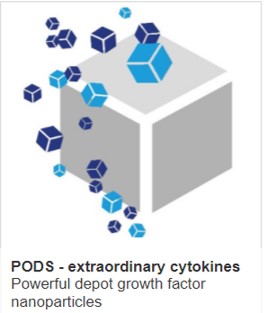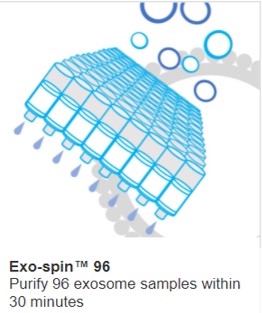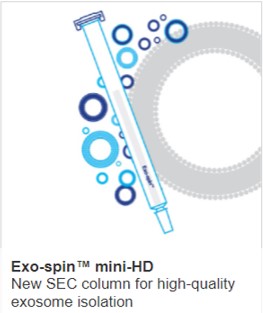Exosomes x cytokines: A potent combination

Exosomes possess an exceptional ability to target specific cells and deliver a highly heterogenous cargo reflective of the type and physiological/pathological conditions of the cell that produced them. Both exosomes and interleukins are critical cellular messengers for the modulation of cellular functions. In recent years, the important role that interleukins within circulating exosomes play in disease and normal tissue homeostasis has become clear.
Interleukins are a family of cytokines that regulate critical aspects of host immunity. Depending on the biological system, interleukins are released either in unpackaged, soluble forms or packaged in exosomes. Once released, they are transported to distant/nearby target cells which display specific receptors that trigger signal transduction and regulatory functions. For example, cultured Estrogen receptor -negative breast cancer cells secrete larger quantities of IL-6 compared to ER-positive cell lines. Cytokines can exist internally in exosomes and also bound to the membrane.
The release of interleukins in membrane-bound forms is increased upon stimulation. Moreover, the pattern of encapsulation changes depending on the nature of the stimulus, such as use of mitogens to stimulate proliferation, suggesting that the encapsulation of interleukins in exosomes is a tightly controlled biological process that is dependent upon system status. Different cell stimulation techniques for homogenous exosome generation have been proposed to enhance desired exosome production.
In concert with this better understanding, improved exosomal cargo loading methodologies are being developed. These are allowing therapeutic interleukins to be incorporated into the core of exosomes to improve their stability and drug efficacy. As well as improving stability, such exosomes as drug carriers facilitate the delivery/targeting of therapeutic interleukins to specific cells, including brain cells, to promote efficacy and limit side effects.
Exosomes are also being utilized for the development of potent vaccine platforms. Much attention has been focused on the potential of genetically engineering tumor-derived exosomes (TEX) and dendritic cell-derived exosomes (DEX) containing high levels of anti-inflammatory interleukins that are able to induce a strong anti-tumour immune response in vivo.
Interleukins in exosomes also offer diagnostic potential. For instance, a recent study reported that the expression of the IL-13 receptor on exosomes can serve as a marker to detect cancer or correlate with metastatic events. In addition, quantitative changes of IL-6, an inflammatory cytokine, in plasma-derived exosomes have also been shown to provide a biomarker for chronic kidney failure and neuroinflammation.
Aiming to exploit this greater understanding of the specific association of exosomes, many commercial companies have established manufacturing platforms to produce therapeutic exosomes that are currently undergoing pre-clinical and clinical studies. For example, Exogenus Therapeutics is developing exosomes with immunomodulatory properties.
IMAGE Guillame Pelletier
Learn more about powerful technologies that are enabling research:



